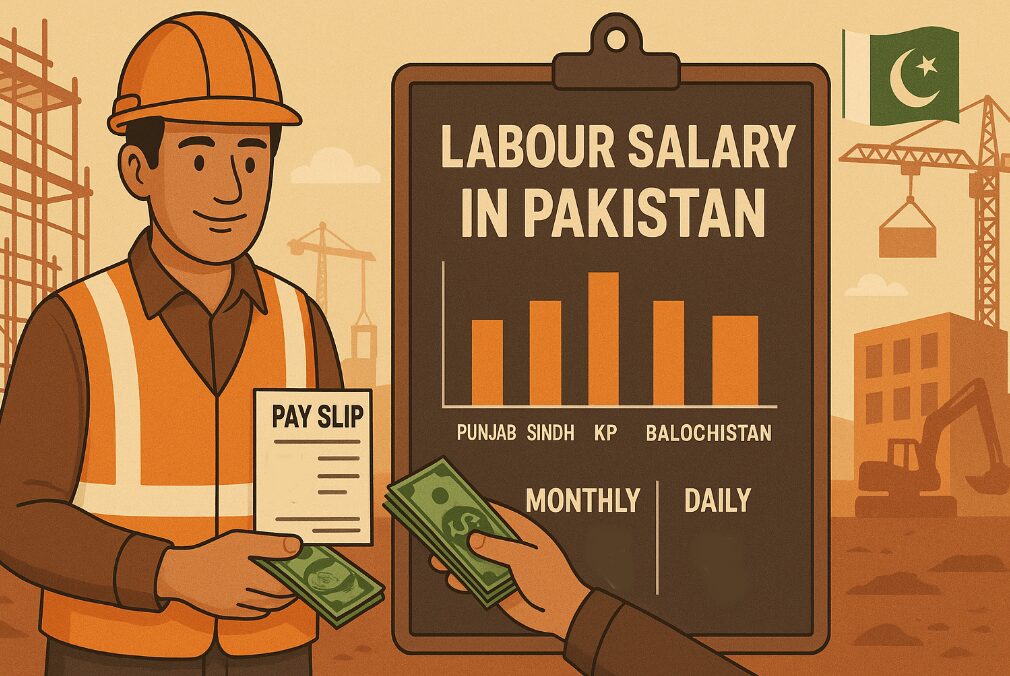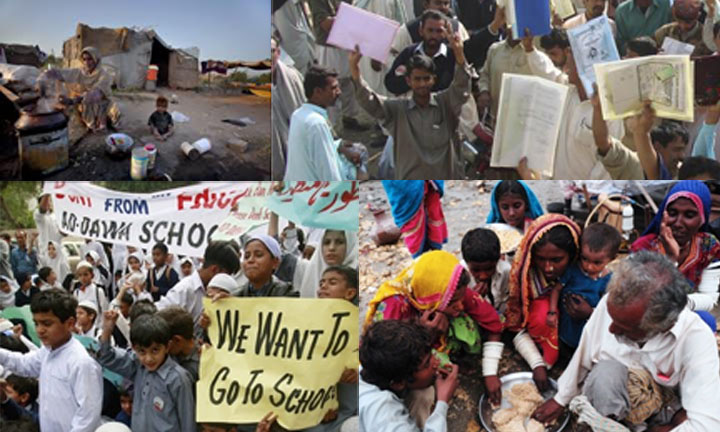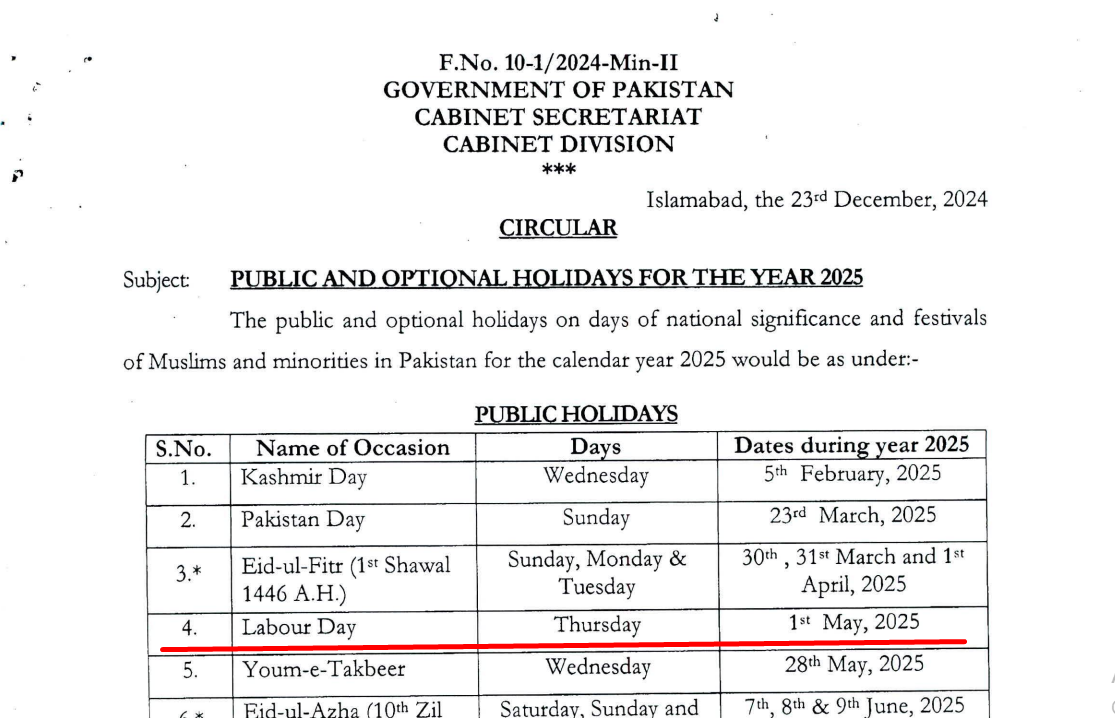If you’re a worker, employer, or policymaker in Pakistan, understanding the minimum wage laws is essential for protecting rights and ensuring fair labor practices. The minimum wage is the lowest legally permissible salary an employer must pay to a worker for their labor. Set by federal and provincial governments, these wages aim to protect unskilled or vulnerable workers from exploitation.
In 2025, Pakistan’s minimum wage will see important updates to reflect inflation and cost-of-living changes. This guide provides you with a clear, updated overview of minimum wages across provinces, your rights as a worker or employer, and what to do if these wages are not being honored.

What Is the Minimum Wage in Pakistan in 2025?
As of July 2025, the minimum wage for unskilled labor across most provinces is PKR 37,000 per month. This was officially announced by various provincial governments during the 2025-26 budget presentations. However, there are variations between provinces and industries.
| Province | Monthly Minimum Wage (Unskilled Workers) |
|---|---|
| Punjab | PKR 37,000 |
| Sindh | PKR 37,000 |
| Khyber Pakhtunkhwa | PKR 36,000 |
| Balochistan | PKR 36,000 |
| Islamabad (ICT) | PKR 37,000 |
These figures apply to unskilled workers. Skilled workers, or those in specific industries like construction or textiles, may have separate wage scales set by the Minimum Wages Board.
Who Sets the Minimum Wages?
Minimum wages in Pakistan are governed by:
-
The Minimum Wages Ordinance, 1961
-
Provincial Labour Departments
-
Minimum Wages Boards (separate for each province)
Each board reviews cost of living, inflation, and economic indicators annually and recommends changes to the provincial governments. Final approval is usually announced during the budget session each year.
Why Minimum Wage Matters
-
Protects Workers’ Rights: Ensures a basic income floor to meet essential needs.
-
Reduces Poverty: Helps in raising living standards, especially in low-income households.
-
Encourages Fair Competition: Prevents businesses from cutting costs by underpaying workers.
-
Supports Economic Growth: Workers with better wages tend to spend more, stimulating the economy.
How to Ensure You’re Receiving the Legal Minimum Wage
If you’re unsure whether you’re being paid fairly, follow these steps:
Step 1: Check Your Province’s Official Rate
Visit your province’s Labour Department website or call their helpline to verify the current minimum wage.
Step 2: Review Your Pay Slip or Contract
Ensure that your salary (excluding overtime) meets or exceeds the set monthly minimum wage.
Step 3: Talk to Your Employer
If there’s a discrepancy, first raise the issue with your employer or HR department.
Step 4: File a Complaint (if needed)
You can contact your nearest Labour Office or submit a complaint online (where available). You do not need a lawyer to file a wage complaint.
Step 5: Keep Documentation
Maintain copies of your contract, payslips, or bank deposit records to support your case.
Penalties for Not Paying Minimum Wage
Employers who violate minimum wage laws may face:
-
Fines of up to PKR 20,000 per worker
-
Legal action or imprisonment (in extreme or repeated violations)
-
Back-pay orders issued by labour courts to compensate underpaid workers
It is in an employer’s legal and ethical interest to comply with wage laws.
FAQs
1. Does the minimum wage apply to part-time or daily wage workers?
Yes, but it’s calculated proportionally. Daily or hourly wages must still meet the equivalent of the monthly minimum wage based on standard work hours (8 hours/day, 26 days/month).
2. Are domestic workers included in minimum wage laws?
Yes, in most provinces. Punjab and Sindh have officially included domestic workers under minimum wage protections as of 2023–2024.
3. Can employers deduct for meals, uniforms, or tools from wages?
Deductions are only allowed if explicitly permitted by law and agreed upon in writing. Arbitrary deductions are illegal.
4. How often are minimum wages updated in Pakistan?
Generally, they are reviewed annually during the provincial and federal budget cycle, but implementation depends on inflation trends and economic factors.
5. Is there a different minimum wage for skilled workers?
Yes. Provinces often publish separate wage schedules for skilled laborers, which are usually higher than for unskilled workers.
Minimum wage laws are more than just numbers, they’re about dignity, fairness, and economic justice. Whether you’re a worker ensuring your rights are respected, or an employer seeking compliance, staying informed is essential. With the 2025 updates pushing the minimum wage to PKR 37,000, it’s a step forward in ensuring fair compensation across Pakistan.
If you believe your rights are being violated or simply want more information, don’t hesitate to contact your local Labour Department or seek help from a workers’ union or legal aid organization.






